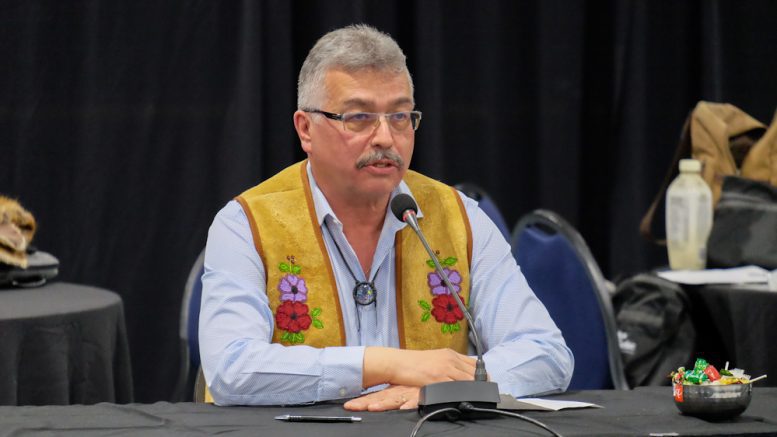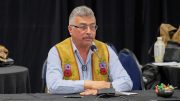Michael McLeod, member of parliament for the NWT, has announced $1.8 million in funding for projects in Inuvik and Fort McPherson to create 25 full-time and part-time jobs.
Five regional initiatives led by businesses, community organizations and Indigenous economic development organizations will split the pot of money.
The supported projects are a targeted investment in economic infrastructure, sector development, capacity building, business expansion and food security for Northerners, according to a Wednesday press release.
The Inuvialuit Community Economic Development Organization (ICEDO) will be getting $550,000 for a two-year project to support the development of a COVID-19 economic recovery plan to guide communities in the Inuvialuit Settlement Region. ICEDO will be contributing $223,328. The plan will be created for 2021 to 2025 and explore opportunities in the region such as a cruise ship strategy for communities along the Beaufort Sea, developing country food processing and reindeer herding.
The Inuvialuit Regional Corporation will be getting $550,000 for a one-year project to plan for a new natural gas well. The IRC is contributing $512,000 and the project will take steps towards completing feasibility studies, research design requirements, environmental analysis, developing the well site and a four-kilometre access road. The site is expected to create 10 jobs.
Tetl’it Zheh Development Corporation will be getting $277,363 to improve business capacity through staffing, business planning and facility upgrades, such as security fencing, garage renovations and creating a lumber storage area. The corporation is contributing $73,319 and the initiative will create three jobs.
The Community Garden Society of Inuvik will be getting $400,500 from CanNor and $85,000 from the University of Saskatchewan to purchase and install a sea can-based hydroponics farm to improve food security in the region and provide access to fresh produce year-round.
The executive director of the garden society, Ray Solotki, said they hope to achieve similar results to projects in Whitehorse and produce 500 pounds of produce every month. The greenhouses have been delivered to the community but Solotki said they are waiting on some electrical installation before they are operational.
The society is contributing $89,600 and one job is expected to be created with three other jobs being expanded.
Finally, the Teetl’it Gwich’in Band will be getting $100,000 in a three-year project to build and install a community freezer and the creation of a training program to increase community capacity to harvest, process and store country foods. The program would include workshops on butchering and fishing techniques, fruit harvesting, cooking, crop conservation and more. This project also received $24,660 from the Teetl’it Gwich’in Band Council, an additional $5,000 from its Wellness Department and $3,000 from the Hamlet of Fort McPherson.
Chief Wanda Pascal of the Teetl’it Gwich’in Band expressed her thanks to the federal government and said the programs made available through the funding had everything to do with her band’s traditional activities.
“The community freezer program has already allowed us to share knowledge about country food preparation, caribou meat, cutting and making traditional foods including drying of caribou meat,” Pascal said.
McLeod said this is a new announcement of money, though he said “the projects and contribution agreements … have been signed a while ago, but they hadn’t been announced yet.”
The federal funding is being delivered through the Canadian Northern Economic Development Agency (CanNor).
“The investments made today through CanNor will continue to support northern businesses, organizations and communities with opportunities as they weather the economic impacts of this pandemic and plan for a strong economic recovery,” said McLeod.
“Strategic investments like these also help greatly at a local level with community economic development and job creation, and, more broadly, the development of a diversified and sustainable economy across NWT.”









